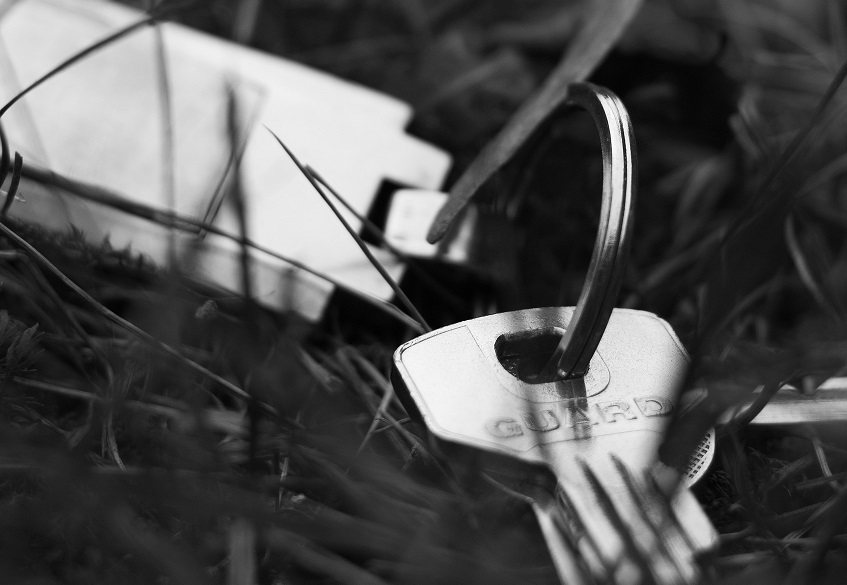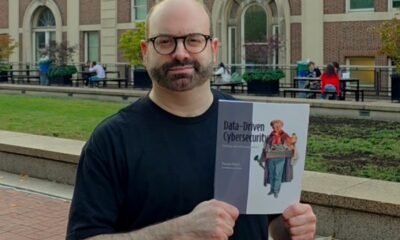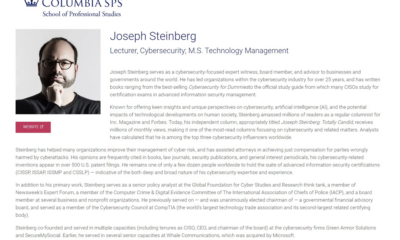15 Personal Safety Tips That Could Save Your Life
I am often asked if I have any “interesting” physical security pointers. So, here are 15 suggestions; while not all of them apply to every person, at every location, or in every situation, in some cases, putting them into practice may save you or a loved one from serious danger.
1. Never trust a door chain lock.
Whether in a hotel or at home, never rely on door chain locks for safety. Even amateurs can often undermine them in seconds.
2. Put tissues in peepholes.
If you are ever staying in a hotel room that has a door with an uncovered peephole, put a crumpled tissue in the peephole so that nobody can see into your room through the peephole. Most peephole one-way technology can be defeated. If you have a peephole without a cover at home assume that people can see through it from the outside into your house.
3. Keep your car key fob reachable from your bed; your night table is a good storage location.
Car fobs contain panic buttons, and can double as a great alarm in case of emergency. Pressing the panic button will cause your vehicle to repetitively blast its horn and flash its headlights – if your car is in the driveway this can draw attention to your location and (hopefully) scare would-be-criminals away. Police responding to a call may find your home faster as well. Of course, if you live in a high-rise apartment, or otherwise do not store your car somewhere where it can serve as an alert mechanism, the key-fob alarm is not likely going to provide this benefit. Also, consider storing your keyfob wrapped in aluminum foil – some cars can be broken into using devices that boost and relay signals from remote keyfobs; wrapping a fob in aluminum foil when it is not in use can protect against such crimes.
4. If you carry a physical car key, keep it in your hand when walking alone, especially in parking lots.
Having your key available reduces the amount of time between when you approach your car and when you drive away – thereby reducing your exposure to attack. Also, a physical key protruding between your knuckles as you make a closed fist can serve as a solid makeshift weapon in case someone does try to attack you.
5. Set the home address in your smartphone, GPS, and other devices to an address near your home, but not to your actual home address.
If someone steals your phone or breaks into your car while you are away from home, you do not want the crook to attempt to rob your home or call friends in the area to do so. Theoretically, any paperwork in a car that contains your home address should be kept locked up in the glove compartment to minimize the risk of that information being misused for similar nefarious purposes, but, realistically, that is an inconvenience that most people are unwilling to endure, and papers are less likely than electronics to get swiped during a quick break-in.
6. Enable remote wipe for your smartphone.
If it is stolen, you want to make sure that any sensitive information on your phone – from which, for example, your children’s schedules may be able to be determined – is wiped.
7. Do not overshare on social media.
People have a tendency to post vacation pictures while still far from home – but, if such information is seen by the wrong sets of eyes it can lead to attempts to rob your home. Also, do not respond to social-media invitations to events that involve all the residents of your home – doing so can let the public know in advance that nobody will be home at a certain time. There are so many other examples of what not to share on social media – the bottom line is think twice before posting, and, whenever possible, use technology to address any mistakes in this regard. (Full disclosure: SecureMySocial, of which I am the CEO, offers technology in this sector and owns a related US patent.)
8. Lock up dangerous medications that are candidates for abuse.
If you have such prescription drugs at home do not store them in medicine cabinets that are accessible by visitors or anywhere else where visitors may encounter them. You do not know the personal demons of everyone who visits your home – many people suffer from addiction issues; the same may even hold true for the other residents of your home.
9. Do not let anyone see you enter sensitive information into a computerized device.
With cameras ubiquitous, it is important to block people’s view of your hand when entering PIN numbers, passwords, alarm codes, your children’s carpool pickup times, etc. Remember, high-resolution cameras that can see clearly from far away are now widely available – you may not even see a camera that is recording you.
10. Cover cameras.
Cover the cameras in smartphones, laptops, tablets, smart televisions, etc. when you want to be sure that they cannot record you. Left uncovered, they can record you without your knowledge. Keep in mind that microphones can also be activated by malware. On that note, do not bring cameras into truly sensitive locations, and understand that the microphone on an electronic device can record sound even if the device’s camera is well-covered.
11. Check for skimmers and hidden cameras.
Before making a credit card payment or using an ATM machine, check the device for added-on cameras or “skimming technology.” If a card reader appears to have been tampered with, or something appears strange about an ATM machine, find another machine and notify someone in the store or bank that something may be amiss. Obviously, do the same for any machine that takes a biometric read of yourself – if something seems to have been added to the device, do not provide the system with your fingerprints, or allow it to scan your iris, etc.
12. Reveal sensitive information (when appropriate) on outbound calls, not inbound calls.
Never reveal sensitive information on calls that were placed to you. If you receive a call from your credit card issuer or bank about potential fraud on your account, for example, hang up and call back at the official telephone number printed on the back of the relevant card. Never provide information to someone who called you – that party may not be who he or she claims to be.
13. Likewise, never trust that a phone call placed to your room phone in a hotel was made from inside the hotel.
For example, if you are staying in a hotel and receive a call to the phone in your room from the front desk about the need to repair something in your room, the need to deliver something to you, or about a problem with your credit card, hang up and call the front desk back. Sometimes when people call the main desk and ask to be transferred to a room, or, in some cases, when they have their calls transferred several times from extension to extension around the hotel, the calls appear to have originated internally when they did not.
14. Do not have conversations with “wrong number” callers.
Never give any information about yourself to someone who call you on the phone and claims to have reached you at a “wrong number;” callers might not have actually dialed you by accident – they may be criminals seeking information in an attempt to target you for identity theft or worse.
15. In emergency situations use flashlights for light – not candles.
Do not use candles for light during power failures caused by wind-related weather conditions (e.g., hurricanes) until after the adverse weather has passed. Besides the fact that candles can be dangerous in general (especially if there are children in the home and/or if the candles are carried around when walking through the house), strong winds can hurl objects through windows – creating situations where candles are exposed to wind that can knock them over and start a dangerous fire.
An earlier version of this article originally appeared in Inc.














 CyberSecurity for Dummies is now available at special discounted pricing on Amazon.
Give the gift of cybersecurity to a loved one.
CyberSecurity for Dummies is now available at special discounted pricing on Amazon.
Give the gift of cybersecurity to a loved one.